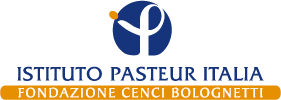Maria Luisa Mangoni

Laureata in Scienze Biologiche con lode nel 1996, Sapienza Università di Roma. Nel 1998, borsista presso il Microbiology and Tumor Biology Center, Karolinska Institutet a Stoccolma dove ha iniziato a studiare il ruolo dei peptidi antimicrobici nell’immunità innata, nel laboratorio del Prof. Hans G. Boman. Nel 2003 ha conseguito il titolo di dottore di ricerca in Biochimica, Sapienza Università di Roma. Successivamente, ha preso servizio come Ricercatore e, nel 2012, come Professore Associato. Oggi è Professore Ordinario di Biochimica presso la stessa Università e referente nazionale presso la European Peptide Society e neo-eletta presidente della Società Italiana Peptidi
“L’obiettivo dell’attuale Progetto è quello di sviluppare e ottimizzare peptidi antimicrobici per il trattamento topico di infezioni polmonari e di ferite cutanee (sostenute soprattutto da microorganismi farmaco-resistenti), eliminando l’agente patogeno e promuovendo la guarigione del tessuto danneggiato. Parallelamente, i peptidi verranno incapsulati in nanoparticelle polimeriche ingegnerizzate per favorire la loro veicolazione al sito d’azione, prolungandone e potenziandone l’efficacia terapeutica. Tali obiettivi rientrano nella tematica della medicina traslazionale e delle terapie innovative contro l’antibiotico-resistenza, dell’Istituto Pasteur”
Small multifunctional membrane-active peptides to tackle drug-resistant respiratory and wound infections: advances in delivery systems and in vivo efficacy
The rapid spread of drug-resistant pathogens is one of the greatest threats for human health. For example, pulmonary and wound skin infections which are frequently due to Pseudomonas aeruginosa and Staphylococcus aureus bacterial strains are an ongoing challenge and have considerable impact worldwide with an increased hospitalization, length of stay and death rate. Our research group identified small peptides (temporins and esculentins) that hold promise as novel antimicrobial compounds with multiple properties. They were found to cause significant reduction of bacterial burden in mice with P. aeruginosa lung infection and/or to display an in vitro bactericidal activity against S. aureus, along with a wound healing activity on human keratinocytes. Of note, wound healing is an essential and complex process to restore tissue integrity and function after injury. Remarkably, for the development of new “ad-hoc” therapeutics in this context, two essential steps must be considered: (i) the peptides’ activity under conditions that better reflect either the pathophysiology of a damaged respiratory epithelium or the healing events, and (ii) a proper formulation for peptides’ delivery at the target site. In line with the above, the project will explore the activity of the selected peptides and optimized analogs on the most relevant pulmonary and skin/soft tissue infectious agents, along with their in vivo efficacy in promoting treatment of infections and repair of skin damage, in proper animal models. The activity of the free peptides will be compared to that of their encapsulated form in suitable nanoparticles (NPs) with the aim to shield the peptides and to assist their transport across biobarriers, prolonging the therapeutic outcome. In addition, to achieve a drug delivery platform with high biocompatibility with skin lesions and improved potential in wound healing, we will develop novel wound dressings.

Viale Regina Elena 291, 00161 Roma
Telefono: +39 06 49255625/6/7/8
Email: info@istitutopasteuritalia.it
PEC: pasteurcenci@legalmail.it
Codice Fiscale: 80201430586
